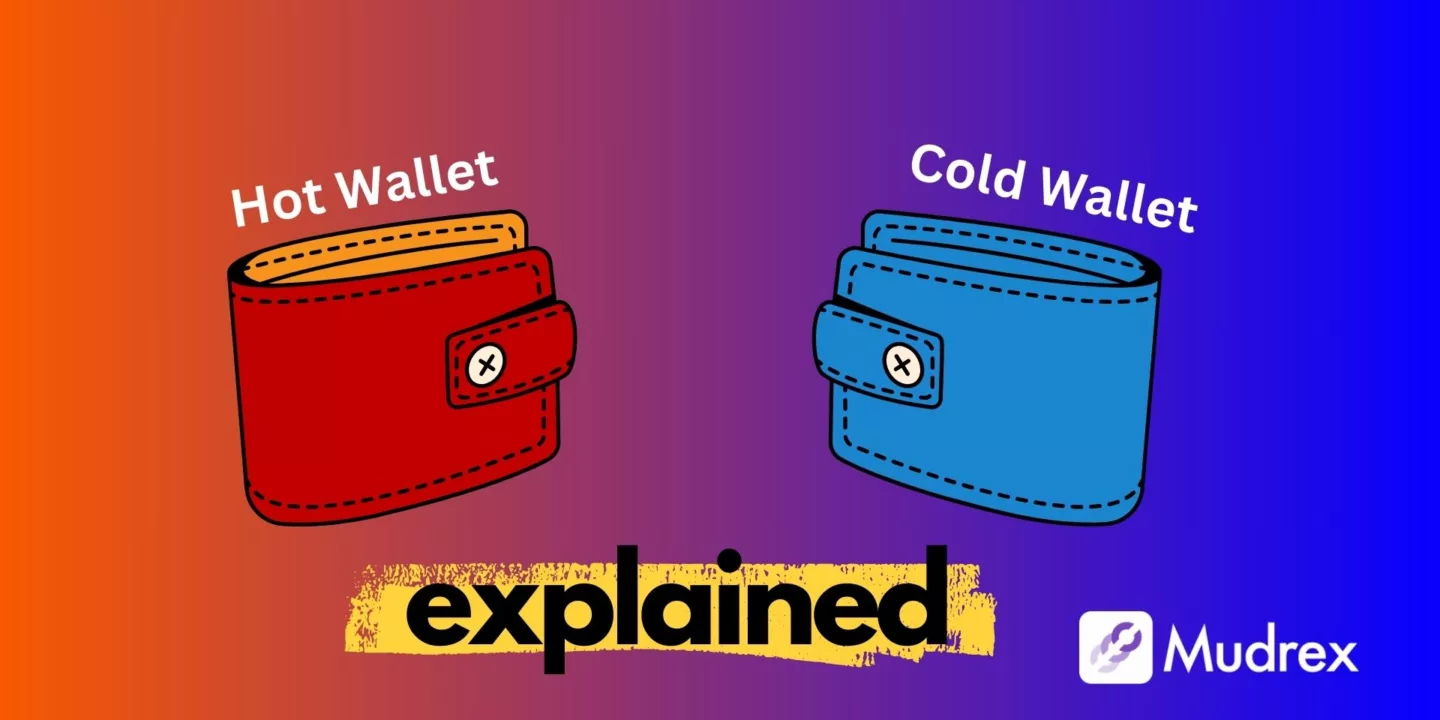
When investing in cryptocurrency, one of the most critical decisions to make is how to store your digital assets safely. The debate between hot wallets and cold wallets has gained traction among crypto enthusiasts and security-conscious investors. These two wallet types are designed to protect your assets in very different ways. In this article, we will explain the major differences, helping you make the best choice for your investment strategy.
Here’s a quick comparison between hot wallets and cold wallets:
| Parameter | Hot Wallet | Cold Wallet |
| Connection | Always connected to the internet | Kept offline, no internet connection |
| Security Level | Vulnerable to online attacks | High security, immune to online hacks |
| Ease of Use | Convenient for everyday transactions | Requires more steps to access funds |
| Ideal for | Frequent traders and small amounts | Long-term storage of large amounts |
| Cost | Often free (software) | Usually requires purchasing hardware |
A hot wallet is a kind of cryptographic money wallet that is constantly associated with the web, making it simple to get to your computerized resources for exchanges, exchanging, or moving coins. Hot wallets are fundamental apparatuses for dynamic dealers who need prompt admittance to their digital currency. Be that as it may, the accommodation accompanies the compromise of possibly higher security gambles because of their steady web association.
ALSO READ: Everything you need to know about Blockchain Wallet
A cold wallet, also known as cold storage, is a type of cryptocurrency wallet that is kept offline, providing a significant level of security against potential online threats. Cold wallets are perfect for long-term investors who prioritize the safety of their assets over ease of access. Since they are offline, cold wallets protect your private keys from being exposed to cybercriminals.
The different types of cold wallets include:
Your private keys are offline stored on these physical devices. Two of the most popular hardware wallets are Trezor and Ledger Nano S. To provide you with the maximum level of security and an intuitive interface, they are designed to enable you to access your assets at any time.
A paper wallet is a physical piece of paper that contains your cryptocurrency’s private and public keys. While it’s one of the most cost-effective methods of cold storage, it requires proper handling to prevent damage or loss.
For those who seek maximum security, some users set up air-gapped computers or devices that are never connected to the internet. This method requires technical knowledge but offers unbeatable security for storing large crypto holdings.
ALSO READ: What is a Crypto Smart Wallet
Mudrex Wallet is classified as a hot wallet. It allows users to interact with the Mudrex platform seamlessly, making it ideal for frequent traders who want easy access to their assets. However, like all hot wallets, users should be cautious of security risks and take additional measures such as enabling two-factor authentication.
Selecting between a hot wallet and a cold wallet depends on several factors, including your level of activity, the amount of cryptocurrency you hold, and your risk tolerance.
ALSO READ: How to choose the Right Crypto Wallet
Now, let’s look at some misconceptions regarding wallet security:
While it’s true that hot wallets are more vulnerable to cyberattacks, that does not mean they are inherently unsafe. Many hot wallets implement advanced security measures, such as end-to-end encryption, two-factor authentication (2FA), and multi-signature (multisig) approvals for transactions. The possibility of unwanted access can be greatly decreased by using these features.
Some believe that cold wallets are difficult to use due to their offline nature. However, modern hardware wallets have simplified the user experience by offering intuitive interfaces, ensuring that even those with limited technical knowledge can operate them securely.
Choosing between a hot wallet and a cold wallet depends largely on your needs as an investor. For those who prioritize convenience and frequent access, a hot wallet may be ideal. On the other hand, if security and long-term storage are your main concerns, a cold wallet is the better option. Each type of wallet has its advantages, and the right choice will depend on your trading habits and risk tolerance.
Mudrex will support you on your journey by providing useful information and necessary skills. With this assistance, you can make wise choices that could result in profitable cryptocurrency trading. Download the Mudrex app from Google Play to get all the resources and information you require to get started.
There are two main types of cryptocurrency wallets: cold wallets and hot wallets. Software wallets and exchange-based wallets are examples of hot wallets that are online. Paper wallets, hardware wallets, and air-gapped PCs are examples of offline cold wallets.
A cold wallet refers to a cryptocurrency wallet that is stored offline, offering enhanced security by keeping your private keys away from online threats. It is ideal for storing large amounts of cryptocurrency for the long term.
Hot wallets include desktop wallets, mobile wallets, and web-based wallets. Each type provides easy access to your cryptocurrency but also comes with varying degrees of security depending on the platform used.
Peer-to-peer (P2P), decentralized (DEX), and centralized exchanges (CEX) are the three main types of cryptocurrency exchanges. Each kind offers varying levels of security, liquidity, and control.